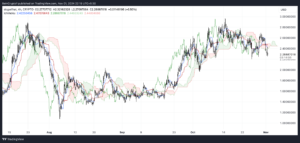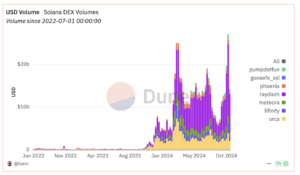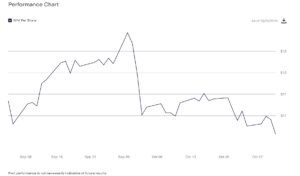In the rapidly evolving cryptocurrency market, memecoins have garnered attention and criticism.
A top executive at Andreessen Horowitz (a16z), a leading venture capital firm, has recently raised concerns about the potential damage these tokens could inflict on the credibility of the broader crypto sector.
Venture Capital Firm Highlights Risks of Memecoins to Crypto Integrity
Eddy Lazzarin, CTO of a16z, took to X to express his unease. Lazzarin likened the memecoin phenomenon to a “risky casino” and voiced concern over its influence on adoption trends, regulatory perspectives, and developer activities within the cryptocurrency space. Lazzarin urged the community to recognize the potential pitfalls.
“I see the damage every day,” Lazzarin stated.
Despite the occasional financial success stories like Dogwifhat (WIF) and Bonk (BONK), which have delivered staggering returns, Lazzarin cautioned that the allure of memecoins might distract from the foundational aims of cryptocurrencies. He criticized the tendency of such tokens to prioritize meme-driven marketing over substantive technical advancement or functional utility.
This perspective from a16z’s executive underscores a growing debate within the crypto community. While some hedge funds and investors have embraced the high volatility and entertainment value of memecoins, others share Lazzarin’s apprehension. They worry that the trivial nature of memecoins might prompt regulators to impose stricter legislation, potentially stifling innovation and growth.
Read More: How to Buy Solana Meme Coins: A Step-By-Step Guide
Conversely, contrasting views come from other industry players like Jesse Walden of Variant, a crypto-focused VC firm. Walden argues that memecoins, primarily offering volatility and amusement, might not be as detrimental as suggested. Also, Walden implies that the crypto space’s fundamental openness and market-driven nature allow for various participant interests.
“I think it’s highly debatable which is doing more damage: a) projects promising groundbreaking tech to mask token liquidity schemes b) memecoins that do not promise anything but volatility and entertainment.” Walden stated.
Furthermore, despite his stark warning, Lazzarin remains optimistic about the industry’s future, hopeful that substantive products and protocols will emerge. Nonetheless, he warns that ignoring the potential repercussions of the memecoin trend could deter talented founders and provide regulators with ammunition to implement stringent regulations.
Finally, the tension between the whimsical allure of memecoins and the quest for substantial, innovative crypto solutions is a narrative that investors, developers, and regulators will continue to watch closely.
The post Memecoins: A Threat to Crypto’s Credibility? This VC Firm Thinks So appeared first on BeInCrypto.







